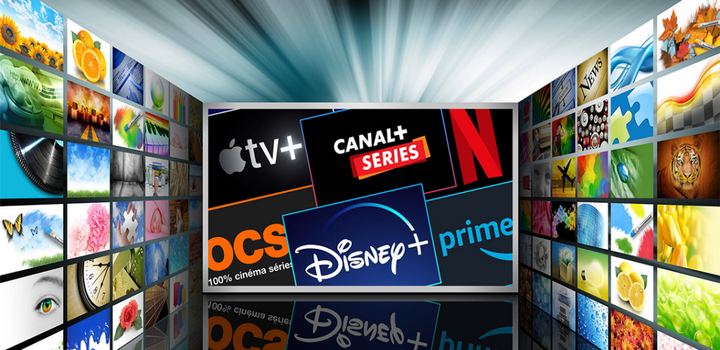Understanding IPTV: The Future of Television
Introduction
In the ever-evolving landscape of entertainment, Internet Protocol Television (iptv kopen) has emerged as a game-changer. Unlike traditional television services that rely on satellite or cable signals, IPTV delivers content via the internet, offering viewers unprecedented flexibility and variety. This article explores what IPTV is, its benefits, how it works, and the future of television in the context of this innovative technology.
What is IPTV?
IPTV stands for Internet Protocol Television, a technology that allows television services to be delivered through internet protocols rather than traditional formats. IPTV can deliver live TV, video on demand (VOD), and other multimedia content. This technology has become increasingly popular due to the rise of high-speed internet and the demand for on-the-go viewing options.
How IPTV Works
IPTV operates by transmitting television content over an internet connection rather than through traditional broadcast methods. Here’s a simplified breakdown of how it works:
- Content Acquisition: IPTV providers obtain content from various sources, including television networks, film studios, and streaming services.
- Encoding and Compression: The acquired content is then encoded and compressed to ensure it can be transmitted efficiently over the internet. This involves converting video into digital data that can be easily streamed.
- Content Delivery: The compressed data is sent to servers that deliver the content to subscribers over the internet. Users can access this content on a variety of devices, such as smart TVs, computers, tablets, and smartphones.
- User Interface: IPTV services typically come with user-friendly interfaces that allow users to navigate channels, access VOD libraries, and manage their viewing preferences.
Benefits of IPTV
- Diverse Content: IPTV offers a vast array of channels and programming, catering to various interests. Viewers can choose from international, regional, and niche channels that may not be available through traditional cable services.
- On-Demand Viewing: With IPTV, viewers have the flexibility to watch content whenever they want. This on-demand capability allows users to catch up on missed episodes or binge-watch entire series at their convenience.
- Multi-Device Access: IPTV services can be accessed from multiple devices, allowing users to watch their favorite shows on the go. This flexibility aligns with modern lifestyles, where viewers want content available at their fingertips.
- Cost-Effective: Many IPTV services offer competitive pricing compared to traditional cable subscriptions. Additionally, users can choose plans that suit their viewing habits, avoiding unnecessary costs for channels they don’t watch.
- Interactive Features: IPTV can provide interactive services such as voting, gaming, and social media integration, enhancing the overall viewing experience.
Challenges of IPTV
Despite its many advantages, IPTV also faces certain challenges:
- Internet Dependence: IPTV requires a reliable and high-speed internet connection. Users in areas with poor internet infrastructure may experience buffering and quality issues.
- Regulatory Issues: The legal landscape surrounding IPTV can be complex. Providers must navigate licensing agreements and copyright regulations, which can affect content availability.
- Quality of Service: The quality of IPTV services can vary significantly among providers. Users should research and choose reputable IPTV services to ensure a satisfactory viewing experience.
The Future of IPTV
The future of IPTV looks promising as technology continues to advance. Here are a few trends shaping its evolution:
- Integration with Smart Homes: As smart home technology gains popularity, IPTV services are likely to integrate seamlessly with home automation systems, allowing users to control their viewing experience through voice commands and smart devices.
- Enhanced User Experiences: IPTV providers are increasingly focusing on personalized experiences, utilizing artificial intelligence and machine learning to recommend content based on user preferences and viewing history.
- 5G Technology: The rollout of 5G networks will significantly enhance IPTV capabilities. With higher speeds and lower latency, viewers can expect smoother streaming experiences and improved quality for live events.
- Cloud-Based Solutions: As cloud technology continues to evolve, IPTV services will likely move towards more cloud-based solutions, allowing for greater scalability and flexibility in content delivery.
- Global Reach: IPTV’s ability to transcend geographical boundaries means it can offer localized content in various languages, appealing to diverse audiences worldwide.
Conclusion
IPTV is revolutionizing the way we consume television, providing flexibility, variety, and convenience that traditional broadcasting cannot match. As technology advances and user demands evolve, IPTV will continue to shape the future of entertainment. Whether you’re a casual viewer or a dedicated binge-watcher, IPTV offers a world of possibilities at your fingertips. As we look ahead, it’s clear that IPTV is not just a trend but a fundamental shift in how we experience television.

